After two years of Covid restrictions and limitations, Menunkatuck Audubon Society expanded some activities and had significant accomplishments. The chapter territory expanded to by adding Ansonia, Derby, and Seymour.
Conservation
Photo:Robin Ladouceur
Menunkatuck’s UrbanScapes Native Plant Nursery in the Newhallville neighborhood of New Haven is a partnership with Community Placemaking Engagement Network, a neighborhood community action group. We worked with seven neighborhood teens and adults growing 3000 native perennials and shrubs. We planted many in neighborhood gardens and sold others. In partnership with Highstead, we had five native plant workshops at the nursery.
Terry Shaw’s crew continued to install and replace Osprey platforms along Connecticut’s shore.
Menunkatuck is partnering with the Connecticut Ornithological Association and other conservation organizations in Lights Out! Connecticut, a project to help birds reach their destinations safely by reducing skyglow over our cities.
The Purple Martin colonies at Hammonasset and the Guilford Salt Meadow Sanctuary fledged almost 500 young with half from Guilford. Tree Swallow nest boxes at Hammonasset, the Ox Pasture Preserve, Guilford Salt Meadow Sanctuary, and West River Memorial Park fledged 300 young birds. Neither Purple Martin Gourds at the Ewen Farm Preserve in Orange nor West River Memorial Park in New Haven have been colonized yet.
Community Science
The East River Marsh Migration Survey grew to the point where we were able to incorporate it as a separate entity, the East River Watershed Research Institute with additional studies including water quality monitoring.
After canceling the 2020 Christmas Bird Count because of Covid, Menunkatuck had teams scouring the Guilford-Long Island Sound count circle contributing to Audubon’s 122 year old bird survey. .
Advocacy
As part of the Connecticut Forage Fish Alliance, Menunkatuck continued our education and advocacy campaign to save our seabirds from the extinction crisis facing them and advocating for the Forage Fish Conservation Act. Some minor gains were made. The Connecticut State Legislature passed a bill to protect forage fish in the state. A ban on taking of horseshoe crabs except for research and bleeding passed the State House but not the Senate. Other bills concerning balloons, rodenticides, and lights out failed to gain traction. We provided testimony regarding siting offshore wind turbines in the waters off Massachusetts and Rhode Island.
Outreach
Before the pandemic Menunkatuck tabled at 8-10 events each year. This year we were able to get back to six events where we publicized our conservation and education activities.
Education
We offered 17 Zoom and in-person programs with an average audience of about 40 people and speakers and attendees from throughout the country.
We continued to stream video from our nest cameras in New Haven, at Hammonasset Beach State Park, and on Falkner Island.
Volunteers & Funding
We had 90 people who donated 1600 person-hours of volunteer time. They installed Osprey platforms, monitored nest boxes, conducted the marsh migration survey, worked at UrbanScapes, and performed other activities. Their volunteer time was worth more than $56,000.
Your contributions to Menunkatuck were leveraged into grants and gifts totaling more than $9,000. We were also the fiscal agent for a $19,200 Guilford Foundation grant to the East River Watershed Research Institute.
Motos towers are used to track wildlife.
In addition to maintaining our current projects, during 2023 we plan to use the greenhouse at the Urbanscapes Native Plant Nursery to propagate Spartina altiniflora for salt marsh restoration, establish new native plant demonstration gardens, install a Motus tower in the New Harbor area, and distribute nature backpacks to local libraries for loan to patrons.
Menunkatuck is an all-volunteer organization with no paid staff. The majority of our programs and field trips are free, and any fee we charge is simply to cover the expenses of a program.



